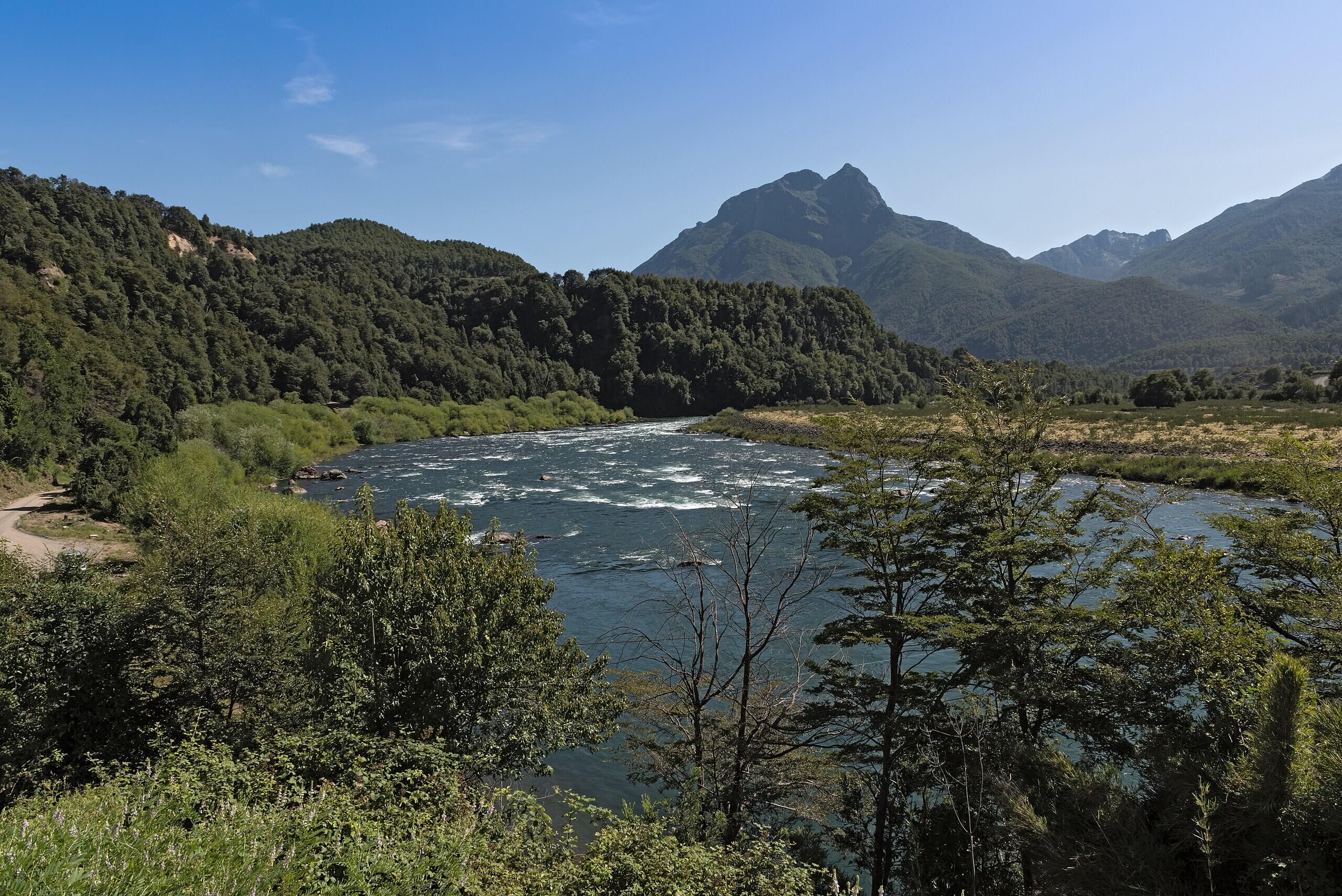Tensions Rise Over China-Funded Hydroelectric Project in Chile
Photo: Wikimedia Commons.
The Rucalhue project, a new hydroelectric plant on the Biobío River, has sparked strong opposition from local communities and environmental organizations due to its social and ecological impact. The plant, promoted by the Chilean company Rucalhue Energía, a subsidiary of China International Water and Electric Corporation (CWE), will have a 90-megawatt (MW) capacity and will require the flooding of 139 hectares of land, affecting protected native species such as the guindo santo and naranjillo.
In 2023, the project was declared to be of “national interest” by the National Forestry Corporation (Conaf), which facilitated the approval of management plans and the start of construction. However, the lack of a thorough Indigenous consultation has been criticized by experts and organizations, who argue that Chile has failed to comply with the ILO Convention 169 and the Escazú Agreement.
Local communities, which have already suffered displacement due to previous hydroelectric projects, warn that the dam will further fragment the social fabric and destroy key ecosystems. Some residents have staged protests and land occupations, only to be forcibly removed by police.
The company claims it will implement compensatory measures, including reforestation with native species, but experts, such as political scientist Pamela Poo, question the transparency of the process and warn that the government is prioritizing economic gains over environmental protection. As construction progresses, the affected community faces the challenge of resisting or accepting a project that will irreversibly transform their environment.
Main Source:
Rucalhue, la hidroeléctrica en Chile que el gobierno impulsa y comunidades resisten – Dialogue Earth
Related News:
Percepción de China en los medios chilenos
China’s Presence in Chile’s Energy Sector: Risks and Challenges
La industria china en Chile: Casos del litio y el salmón
You may be interested in:
Rucalhue, la hidroeléctrica en Chile que el gobierno impulsa y las comunidades resisten – Inter Press Service

